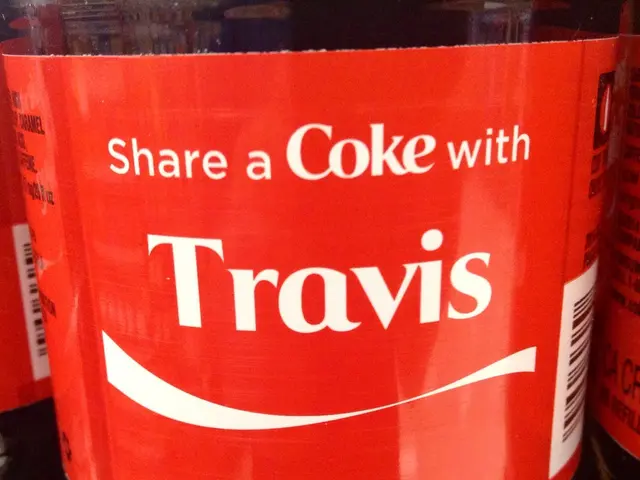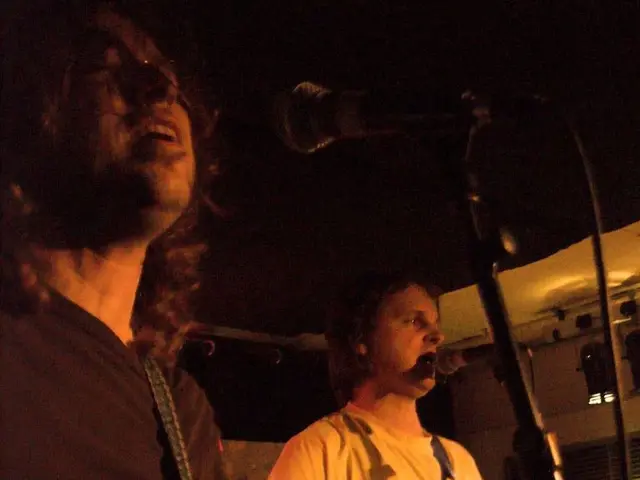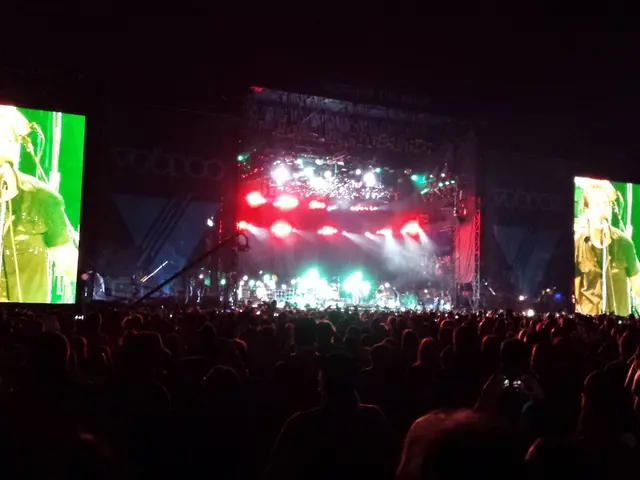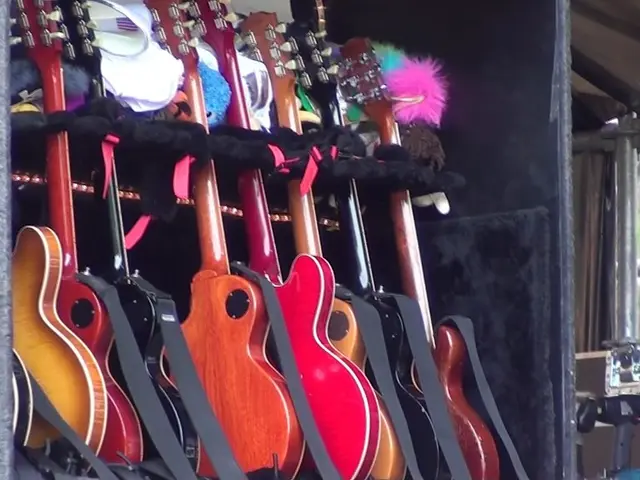Exploring Music Technology's Impact on Psychological Well-being: Does Music Tech Hold the Key to Enhanced Mood?
Creativity and science go hand in hand, as research shows they are interconnected. Science depends on creativity at every stage, from asking questions to interpreting data. The intriguing connection between the two is dived into by scientists and researchers.
Studies have discovered that creativity stems from the interplay between the brain's executive control network, responsible for focus, and the default mode network, linked to imagination and mind-wandering. The creative process relies on both associative and controlled processes.
Additionally, listening to upbeat music can boost divergent thinking, a crucial element of creativity. Research published in Frontiers for Young Minds showed that enhancing creativity in teens improved their problem-solving skills. Engaging in creative activities contributes to scientific learning as well.
Singer Mike Mantione of the punk bands Five Eight and The Bad Ends shares a personal story of the therapeutic effects of music on him. As a teenager, Mantione faced a free-floating anxiety disorder, but music provided a coping mechanism. The album Quadrophenia resonated with him and helped him feel less overwhelmed. Mantione believes music can break apart trauma, acting as a lifeline.

As technology advances, companies are increasingly translating the emotional impact of music into quantifiable health benefits. Music technologist and CEO of Tuned Global, Con Raso, explains that for music to function like a drug, it requires precision in selection, delivery, and measurement. Through the use of technology, the future of music therapy lies in dispensing it in a digital prescription format, adjusting it based on real physiological outcomes.
Gary Jones, CEO and co-founder of MediMusic, notes that music interacts with various parts of the brain, such as the amygdala, the hippocampus, and the auditory cortex. MediMusic developed the Digital Drip system, which generates music that simulates the human brain's reaction to audio cues like tempo, harmony, and timbre. This system alters heart rate variability, lowers cortisol levels, and boosts dopamine release, all measurable biomarkers for positive physiological effects.
Despite its growing recognition in the healthcare industry, music therapy should not be over-monetized, argues Mantione. He emphasizes the importance of respecting the vulnerability of the listener as technology makes music therapy more accessible. Music can also serve as a means to build and foster a supportive community, providing a sense of belonging for those in need.

While MediMusic focuses on delivering personalized music arrangements based on biomarkers, other companies are experimenting with music therapy using an app model. Spoke and Spiritune use music and mindfulness prompts to help users achieve specific mental states. Both platforms base their content on clinical research and neuroscientific understanding. Spoke aims to make music a standard part of the mental health toolkit, especially for Gen Z users who often resort to music as self-medication. Spiritune's technology dynamically changes music in real-time, responding to biosignals, and has already secured funding to scale its platform.
Technology in music therapy is revolutionizing the industry by making impactful music therapy more accessible, culturally relevant, and scalable. For many artists like Mantione, technology has been a vehicle for exploring the power of music as therapy. In his case, music served as a form of shadow work, helping him grapple with his emotions and piece together his identity. Through the integration of the arts and neuroscience, the therapeutic capabilities of music continue to be uncovered, offering new avenues for healing and personal growth.
- Mike Mantione, a singer in punk bands Five Eight and The Bad Ends, shares his personal experience of the therapeutic effects of music, having used it as a coping mechanism for his free-floating anxiety disorder.
- The creative process in science relies on both associative and controlled processes, which are connected to the brain's executive control network and default mode network, respectively.
- Listening to upbeat music can enhance creativity, improving problem-solving skills, as shown in research published in Frontiers for Young Minds.
- Gary Jones, CEO and co-founder of MediMusic, highlights the brain's interaction with music through various parts, such as the amyggdala, hippocampus, and auditory cortex.
- Con Raso, music technologist and CEO of Tuned Global, explains that the future of music therapy lies in dispensing it in a digital prescription format, adjusting it based on real physiological outcomes.
- Companies like Spoke and Spiritune are experimenting with music therapy using an app model, basing their content on clinical research and neuroscientific understanding, and aiming to make music a standard part of the mental health toolkit for Gen Z users.








